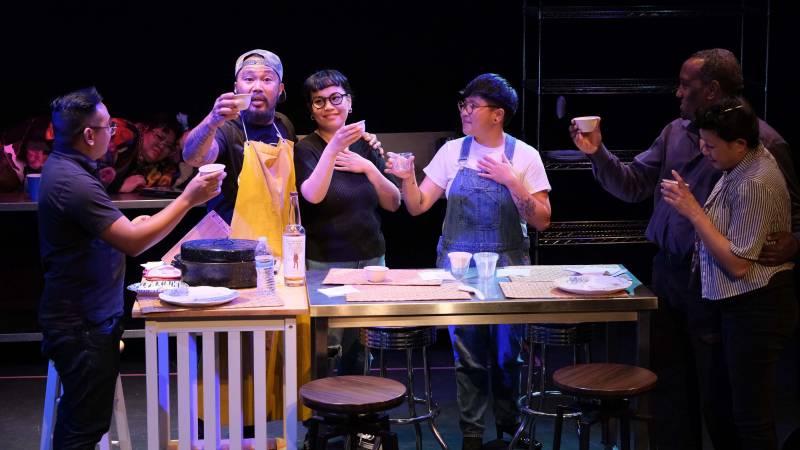Oliver Saria knows about the glory of a lechon—the crunch and crackle when you cut into the pig’s fat-rendered skin, the juicy succulence of its slow-roasted flesh. The San Francisco-based playwright grew up eating enormous portions of whole pig lechon at big Filipino family gatherings, and he says the dish came to symbolize all of the joy and abundance of Filipino food culture.
“Nothing says fiesta like lechon,” says Saria, the managing director at San Francisco’s Bindlestiff Studio, which touts itself as the only black box theater in the United States dedicated to showcasing Filipino American performing arts. “There was not a full celebration if you didn’t have a lechon.”
But the last few years caused Saria to rethink his relationship to Filipino food, especially as several members of the local Filipino American artistic community died young due to complications from diabetes and heart disease. Then the pandemic happened, and people who were laid off from their jobs were left with no safety net. Saria had to drive one Bindlestiff staff member to the emergency room because he had lost his health insurance and was rationing his diabetes medication. “He likely could have died that night,” Saria recalls.

Saria looked at data showing that Filipino Americans have some of the highest rates of diabetes, hypertension and heart disease. “Growing up as a Filipino American, I realized a lot of that was rooted in the food we ate,” he says. “It’s a lot of meat and rice.”
Is there such a thing, then, as too much lechon? Saria’s new play, Inay Dalisay’s World Famous Lechon, takes on that question. Directed by Aureen Almario, the play will make its world debut this week at Bindlestiff, in the heart of the SoMa neighborhood’s Filipino cultural district, with a two-weekend run June 16–25. It’s the theater’s first full-length stage production since before the pandemic.



